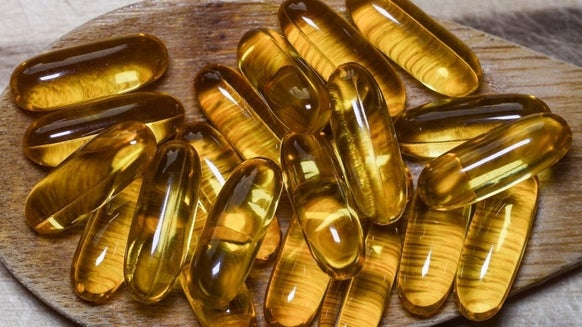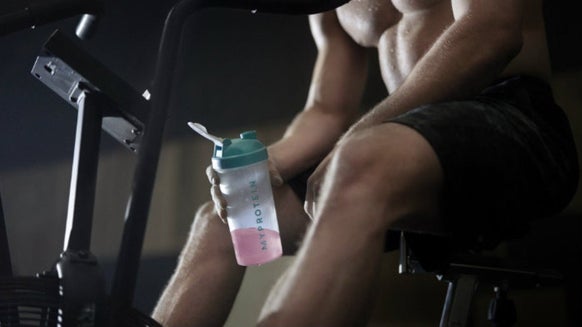What Is Ephedrine? | Should It Be Used By Bodybuilders?
What Is Ephedrine?
If you have been in the bodybuilding game for more than 10 years you more than likely know about this controversial topic and the story behind it. For those who haven’t, Ephedra Sinica is a plant originally used for centuries in traditional Chinese herbal medicine and was known as ma huang. It was used to treat asthma, low blood pressure, bronchitis and other ailments. It wasn’t until 1885 that the ephedra plant was synthesized to isolate the active component known as ephedrine by a Japanese chemist. By the 1920s it was being sold all over Asia and eventually made its way to America where it was discovered this synthetic plant ingredient was a very strong stimulant that could help with weight loss along with the above-mentioned uses.
Throughout the second half of the 20th century, bodybuilders, professional athletes as well as normal individuals used ephedrine to help burn fat, suppress appetite and boost their performance in the gym.
It wasn’t until 2004 that the FDA proposed that ephedrine and all other ephedra alkaloids were unsafe for unregulated use due to individual cases of users having heart attacks from overdosing. In 2006 the FDA banned ephedrine from any kind of over the counter dietary supplement sale in the US (the UK and EU followed soon after) and ever since it has been closely monitored behind the counter of pharmacies to only be sold in small amounts, a certain amount of times a month with full record of who purchased the product.
While some believe that the FDA banned these products for the safety of the consumer, others think it was banned due to its part in the production of the illegal drug methamphetamine. In this somewhat controversial article, we will be going over how effective ephedrine is at helping weight loss as well as if it is actually safe for use.
How Does Ephedrine Help Weight Loss?
The easiest way to think of ephedrine is caffeine’s stronger older brother. By increasing heat expenditure and the metabolic rate of individuals by close to 5%, ephedrine can stimulate the burning of fat mass. Unlike caffeine though, ephedrine does not need exercise to be effective, which is why pairing the two together with exercise is extremely synergetic. To put this effect into perspective, studies consistently showed close to an extra 5 pounds of fat lost over placebo groups (when on a calorie controlled diet) in the span of a month.
Along with this, ephedrine seems to have a pseudo muscle preserving effect while still being able to burn fat, which usually isn’t possible in healthy individuals. It might also be the case that the highly stimulatory effects of ephedrine can help with power output in the gym or on the pavement, especially when combined with caffeine. For all intents and purposes, ephedrine was one of the most potent and effective supplements on the market and can help untrained obese individuals as much as it could help trained athletes.

How to Supplement and Possible Side Effects
Supplementing with ephedrine is rather straightforward and is regarded as safe when the normal dosage is followed. It is important to first assess your sensitivity to stimulants before starting with a full dose though. If you have a history of being hyper alert and jittery with caffeine then more than likely ephedrine will have an even stronger effect, but if you have a normal reaction or otherwise handle moderate doses of caffeine well then you more than likely can handle ephedrine. It is important to start with a small dose of 10 mgs, split into three doses throughout the day (preferably 4-6 hours apart). If you don’t feel much of anything then after a few days (4 or 5) you can double the dose to 20 mgs three times a day. This process can be repeated until you feel alert, have more energy or have less of an appetite and notice a difference in your body through either the mirror or scale. The maximum dose that should be used by even those who handle stimulants very well is no more than 50 mgs three times a day. To increase the effectiveness of ephedrine, caffeine can also be supplemented at the same time (but isn’t required) at the range of 100-200 mgs at the same three times a day. The last ingredient usually added to this fat loss stack is aspirin (commonly known as the E/C/A/ stack), which further helps in the fat burning process but also can help offset some of the side effects.
With safety coming before any kind of performance or fat loss benefits, it is important to know who can supplement with it and how to safely use ephedrine. For any individuals who have a history of heart issues should avoid taking ephedrine as it will raise blood pressure, can cause tachycardia (rapid heart rate) and even heart palpitations among other heart complications for those at risk. For those who have a sensitivity to stimulants might feel nervousness, excessive sweating, anxiety, nausea, and possible tremors. Ephedrine should not be supplemented at all if you are taking any kind of MAOIs, SSRIs, or NDRIs as it could cause a severe negative reaction. Like most supplements you can overdose on ephedrine when taken in too large of doses.
The doses mentioned above will lead to the greatest fat loss potential, with any doses above 50 mgs three times a day will only increase the risk factors that could possibly arise. This unfortunately is one of the main reasons why the FDA had to regulate ephedrine and limit its use, as individuals who were unaware of how to properly supplement with it assumed taking more would lead to more fat loss, but instead only lead to severe negative health complications. If it is legal to buy ephedrine over the counter in your state/country make sure to ask your doctor, especially if you have prior health issues or are on any kind of prescription medication.

Take Home Message
Unfortunately if you are living in the US, UK, EU, and most other countries it is very difficult to obtain ephedrine due to the ban and its often abuse to be made into illegal methamphetamines has given it a bad rap. Some countries though, most notably Canada can still sell ephedrine legally as a dietary supplement in stores. More than likely it is quite safe for healthy individuals who have a balanced diet and exercise or even for overweight/obese individuals who are just starting a workout/diet routine, but as of right now outside of a few countries it isn’t possible to get enough to be used effectively. In the US many groups and organizations have tried but have been unsuccessful to bring back this great fat burner to its former legality but so far have failed. Hopefully, sometime in the future the FDA will reverse its stance and once again allow bodybuilders, professional athletes and everyday individuals to take advantage of this supplement safely and effectively!

Alice Pearson is a UKVRN Registered Associate Nutritionist and UK Anti‐Doping accredited advisor, having obtained a Bachelor’s of Science in Nutrition and a Master’s of Science in Sport Nutrition. She has a specialist interest in the use of sports supplements for improving health, fitness, and sport performance.
Alice has experience working with both amateur and elite athletes, including providing nutritional support to Tranmere Rovers FC and Newcastle Falcons Rugby Club. Her nutritional guidance is always supported by evidence‐based research, which she keeps up to date through continuing professional development and independent learning.
In her spare time, Alice loves travelling, hitting the gym, and getting stuck into a good book.
Find out more about Alice's story here.




